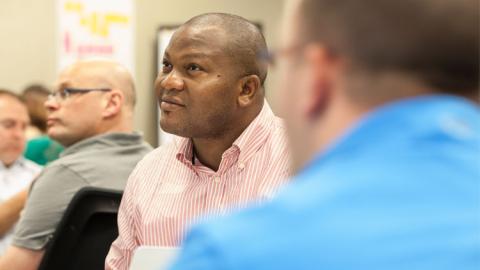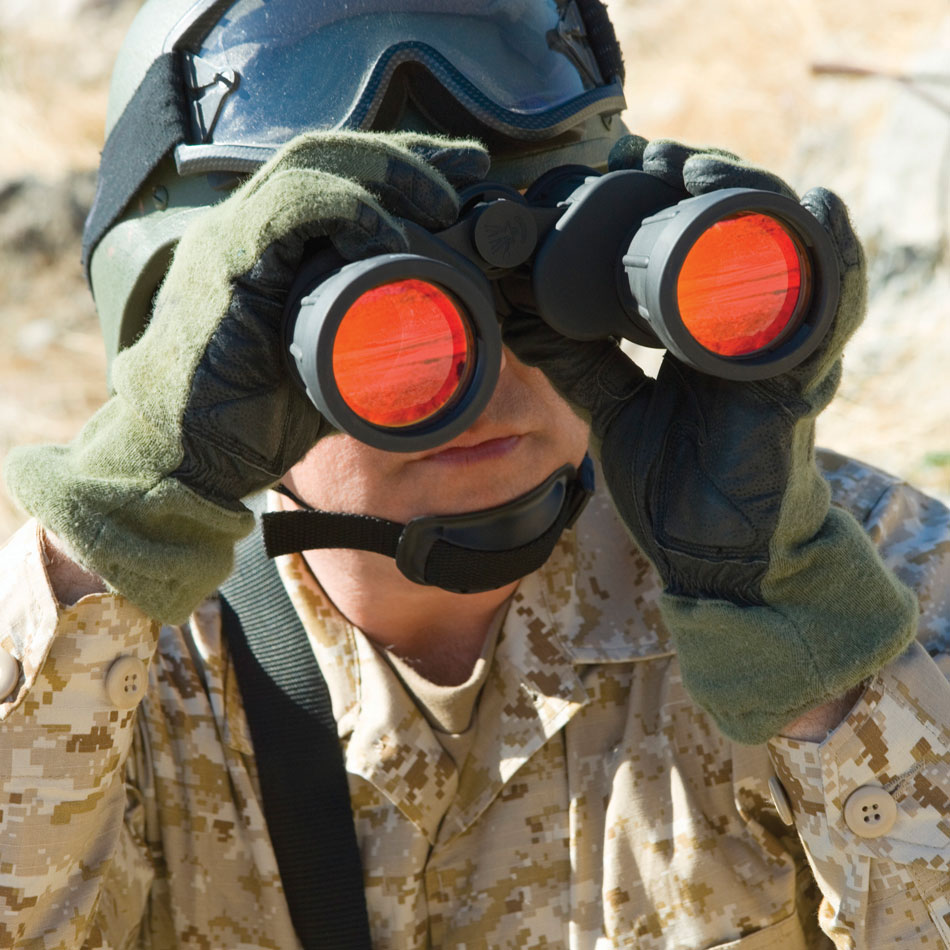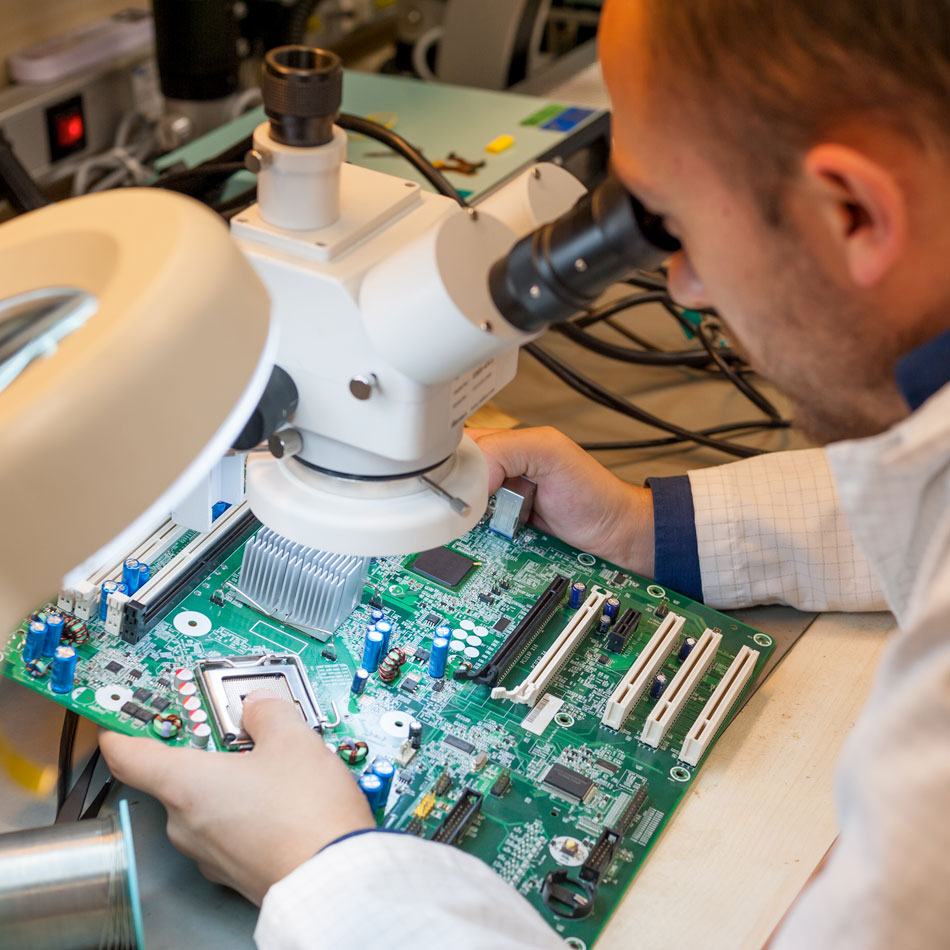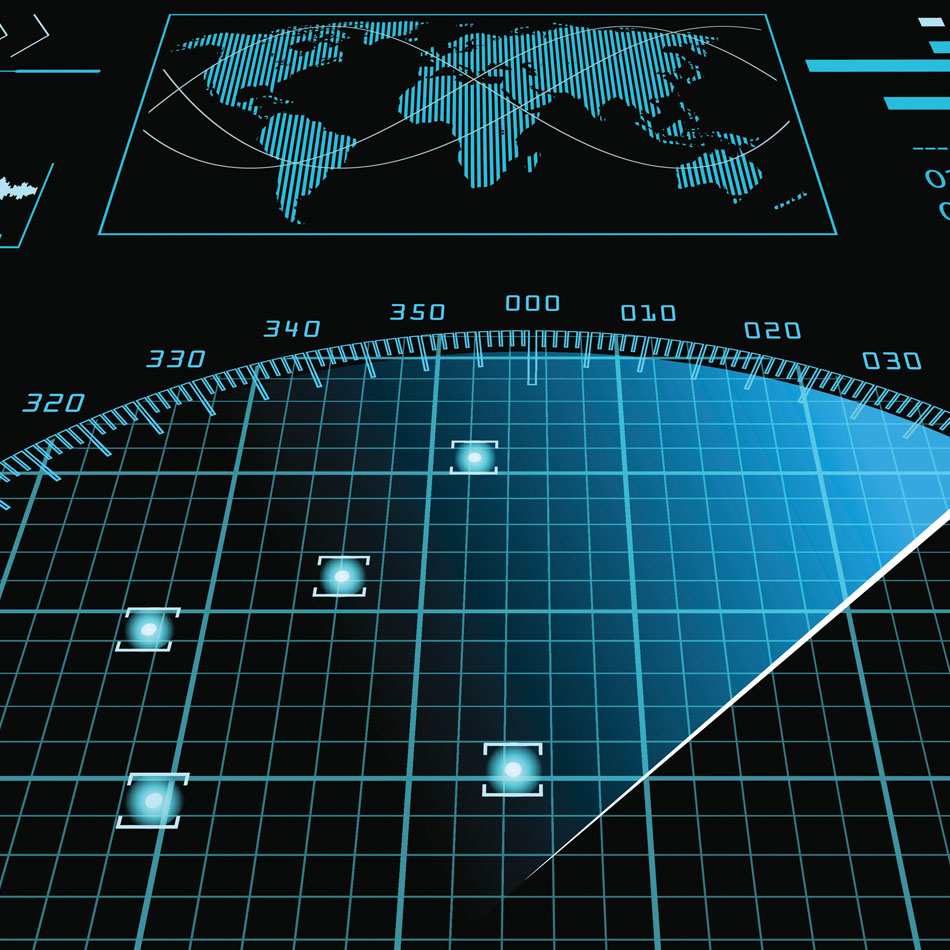Modeling & Simulation Certificate
- Overview
- Program Requirements
- Why Choose a Certificate?
Delivery Method
ClassroomModeling & Simulation Certificate
No matter your field, the Modeling & Simulation Certificate allows you to develop in-depth expertise in an essential and rapidly changing arena. Whether you’re involved in planning and deploying complex technology, or leading large teams through an array of intricate scenarios, the certificate will give you the skills to understand and use these tools to help you in both your daily work and throughout your career.
Program Requirements
- Effective January 2015, courses can only be applied to one certificate. If a core course for a certificate has already been applied to a previously-awarded certificate, then an additional elective must be taken.
- Certificates must be completed within 6 years; courses completed more than 6 years ago may not be applied toward certificate.
- All courses applied to a certificate program must be taken from Georgia Tech.
- This certificate does not require an application.
Your path to achievement is easy! Most certificate courses are offered in classroom locations around the U.S. You can also inquire about training at your location.
Cost
- Course load determines the cost of a certificate program.
- Calculate your total by identifying the courses needed and tallying individual course fees. Some programs offer discounts for course bundling.
Registration
- Select a certificate program, review the requirements, and determine your timeline for completion.
- Add courses to your shopping cart for purchase as you are ready to take them, or as a bundle if desired.
- Proceed to checkout to complete your registration. We accept multiple forms of payment including credit card, purchase order, a private loan (upon request), and VA benefits for certain programs.
Completion
- Certificates must be completed within six years.
- After successful completion of most individual courses, a Certificate of Course Completion will be sent.
- After successful completion of all required courses, request a transcript and program certificate audit.
- Upon verification, GTPE will email your transcript and mail your Certificate of Program Completion. Some programs host a certificate award ceremony during the final course.
Once you earn your Georgia Tech Program Certificate, tout your success on your resume and LinkedIn profile, share with your employer, and celebrate an important career growth achievement!
Why Choose a Certificate?
Professional Certificates are ideal for developing new skills and building deep expertise in a specialized area to update your professional profile, advance your career, or broaden your knowledge base.
Certificates are an “anytime” credential
Start anytime - after graduation or later in your career - and gain deeper know-how in a specific area without the commitment to a degree.
Certificates demonstrate commitment
The dedication of time to earn a certificate demonstrates that you are committed to achieving a higher standard of professional knowledge in your industry.
Certificates provide immediate “ROE”
Georgia Tech learners master real-world skills and apply them to their career the day after completion.
Certificates stand out on your resume
A Georgia Tech credential carries the professional weight to give you a competitive edge.
Who Should Attend
This certificate is designed for engineers, scientists and technicians in an array of fields such as the military, government, health care, education, weather forecasting, transportation, infrastructure, entertainment, and art.

How You Will Benefit
- Develop expertise in modeling and simulation use and technology.
- Establish and deepen contacts with peers and others throughout industry and government.
- Earn a recognized industry credential.
-
Grow Your Professional Network
-
Taught by Experts in the Field
Course Offerings
Simulation is the process of designing a model of a system and conducting experiments to understand the behavior of the system and/or evaluate various strategies for the operation of the system. Modeling and Simulation (M&S) has become an important tool in all phases of the acquisition process…
View Course Details »There are no sessions scheduled at this time. Please check again later.
Get some guidance and gain some control—in theory, that is! The Guidance, Navigation and Control: Theory and Applications course covers the principles of navigation by inertial, celestial, and radio (including GPS) methods, as well as the principles of guidance and control of 6-DOF motion…
View Course Details »There are no sessions scheduled at this time. Please check again later.
The threat posed by infrared-guided missiles on the United States and other countries makes countermeasures increasingly important in the world of defense. In this Directed Infrared Countermeasures course, you will begin by reviewing the history of directed infrared countermeasures and…
View Course Details »There are no sessions scheduled at this time. Please check again later.
The course covers the theory and design of modern ground-based air defense radar system. The course specifically addresses the transmitter, antenna, receiver, signal and data processors, and electronic protection techniques as well as full radar systems such as air surveillance radars, target…
View Course Details »-
May 6, 2024 - May 10, 2024Register By Apr 29, 2024Atlanta, GA$1,895
-
May 5, 2025 - May 9, 2025Register By Apr 30, 2025Atlanta, GA$1,995
Radio-frequency (RF) circuits come in a wide variety of architectures, performing a myriad of functions over a very wide possible range of frequencies. No single technique serves all of the needs of all of the possible circuits. Do you need to perform modeling and simulation of RF circuits,…
View Course Details »-
Oct 22, 2024 - Oct 24, 2024Register By Oct 17, 2024Atlanta, GA$1,975
Radar target detection, estimation, and tracking performance is frequently limited by “clutter,” strong returns generated by the Earth’s surface. Since World War II, considerable effort has been put into developing methods to suppress clutter returns or isolate them from targets, including…
View Course Details »There are no sessions scheduled at this time. Please check again later.
Distributed simulation first appeared in the 1960s with the development of a two-player interactive computer game. In the 1980s, the DARPA SIMNET program created the first virtual world for military training by networking combat simulators. Today, multiplayer online role-playing games are used…
View Course Details »There are no sessions scheduled at this time. Please check again later.
In the Modeling and Simulation of Radar Systems course, you will develop techniques for modeling and simulation (M&S) of modern radars to apply to radar systems design, analysis, test and evaluation, and performance assessment. Begin with the radar equation, then extend M&S to introduce…
View Course Details »-
Sep 24, 2024 - Sep 27, 2024Register By Sep 20, 2024Online$2,195
In the Basic Electromagnetic Warfare Modeling course, you will develop techniques for modeling and simulation (M&S) of radio-frequency (RF) electronic warfare (EW) systems. You will be introduced to the three “pillars” of EW: Electronic Attack (EA) systems, Electronic Protection (EP)…
View Course Details »There are no sessions scheduled at this time. Please check again later.
In this course, you will develop the techniques of modeling and simulation for modern electro-optical and infrared (EO/IR) systems. Learn modeling techniques to sensor systems design, analysis, test and evaluation, and performance assessment. Plus, cover basic EO/IR physics principles,…
View Course Details »There are no sessions scheduled at this time. Please check again later.
The main purpose of this Modeling and Simulation of Antennas course is to gain a true understanding of the principles of antenna theory and the major antenna modeling methodologies. You will review antenna architectures and modeling theory, with an emphasis on various methods of modeling the…
View Course Details »-
Nov 4, 2024 - Nov 7, 2024Register By Oct 31, 2024Atlanta, GA$1,975
Gain hands-on communications systems knowledge! The Software-Defined Radio Development with GNU Radio course will comprehensively cover developing software defined radio (SDR) communications systems using the GNU Radio signal processing and development environment. The course is structured so…
View Course Details »There are no sessions scheduled at this time. Please check again later.
Phased array antennas are key, yet complicated sub-systems in modern radar, electronic warfare, and communications systems. Computer simulation of phased arrays is simple to a first order, using sinc functions or basic Fourier transforms. Simple models leave out important details which are the…
View Course Details »-
May 7, 2024 - May 9, 2024Register By May 2, 2024Online$1,795
-
Oct 8, 2024 - Oct 10, 2024Register By Oct 3, 2024Online$1,795
-
Jan 28, 2025 - Jan 30, 2025Register By Jan 24, 2025Online$1,995
-
May 6, 2025 - May 8, 2025Register By May 2, 2025Online$1,995
-
Oct 7, 2025 - Oct 9, 2025Register By Oct 2, 2025Online$1,995
Key competencies of accomplished systems engineers include team leadership, communication skills, problem solving, systems thinking, strong technical acumen, and mastery of personal attributes such as credibility and trust. Sound familiar? Since most systems engineers develop knowledge in…
View Course Details »-
Jul 16, 2024 - Jul 18, 2024Register By Jul 11, 2024Atlanta, GA$1,595
Get started in the context of model-based engineering (MBE) in general and model-based systems engineering (MBSE) in particular. Learn the essentials of OMG SysML®, a general-purpose modeling language for developing complex systems composed of hardware, software, information, personnel,…
View Course Details »There are no sessions scheduled at this time. Please check again later.
In this SysML 201 course, you'll go beyond the comprehension skills you acquired in DEF 4508P - SysML 101-Model-Based Engineering-Fundamentals: Understanding SysML Models. Take your model-based engineering skills to the next level by learning to implement essential concepts through hands-on…
View Course Details »There are no sessions scheduled at this time. Please check again later.
Get started with Model-Based Engineering (MBE)/Model-Based Systems Engineering (MBSE) by learning the essentials of SysML, a general-purpose modeling language for developing complex systems. This course is a blended live/self-paced (BLS) online format, combining SysML 101 and SysML 201. You’ll…
View Course Details »There are no sessions scheduled at this time. Please check again later.
Effective problem solving is recognized as being universally important across all sectors of the economy and aspects of our lives. Regardless of the size of the problem, from setting personal goals to creating a strategic plan for your organization, the basic problem solving process is the…
View Course Details »-
Jun 18, 2024 - Jun 20, 2024Register By Jun 13, 2024Atlanta, GA$1,695
SysML 621 is an intermediate course that builds on SysML 101/201. You will learn both modeling patterns (good things to do) as well as modeling anti-patterns (bad things to avoid) for each SysML concept area. The model authoring problem (MAP) approach guides you how to apply pattern-thinking…
View Course Details »-
May 20, 2024 - Jul 16, 2024Register By May 16, 2024$2,100
This course will give students a baseline knowledge of enterprise security operations. Content will explore models and architectures of Security Operation Centers (SOCs), including implementation of both preventative and detective technologies. Students will gain skills in vulnerability…
View Course Details »There are no sessions scheduled at this time. Please check again later.
This lab-based course will introduce you to modern defensive skills required to counteract cyber threats. You will use live equipment and virtual machines representing “blue forces” tasked to negate real-world threats against systems and networks. Instructors will place particular emphasis on…
View Course Details »There are no sessions scheduled at this time. Please check again later.
A properly designed experiment should be efficient, informative, and directional. Sadly, technical professionals are almost never taught the rigorous techniques of experimentation that allow them to make informed, statistically meaningful decisions. This course introduces students to the long…
View Course Details »-
May 7, 2024 - May 9, 2024Register By May 2, 2024Atlanta, GA$1,400
-
Jul 16, 2024 - Jul 18, 2024Register By Jul 12, 2024Atlanta, GA$1,400
-
Aug 20, 2024 - Aug 22, 2024Register By Aug 15, 2024Las Vegas, NV$1,400
-
Sep 10, 2024 - Sep 12, 2024Register By Sep 5, 2024Lake Buena Vista, FL$1,400
The Scientific Principles of Test and Evaluation course covers the application of test and evaluation (T&E) to systems or products and highlights the statistical methods that are most useful in that application. The course includes a brief summary of innovation, systems engineering,…
View Course Details »There are no sessions scheduled at this time. Please check again later.
The following courses are no longer offered but still apply if completed within the six-year rule:
- Fixed- and Rotary Wing Aircraft Flight Dynamics and Control (DEF 1003P)
- DoD Simulations for RF Warfare (DEF 2519P)
- Advanced Target Tracking for Ballistic Missile Defense (DEF 3525P)
- Advanced Target Tracking for Air Defense (DEF 3527P)
- Fundamentals of Modeling (DEF 4001P)
- Fundamentals of Combat Modeling (DEF 4011P)
- Test and Evaluation Using Modeling and Simulation (DEF 5002P)
- Introduction to Combat Modeling and Wargaming (DEF 4016P)
Related Certificates













